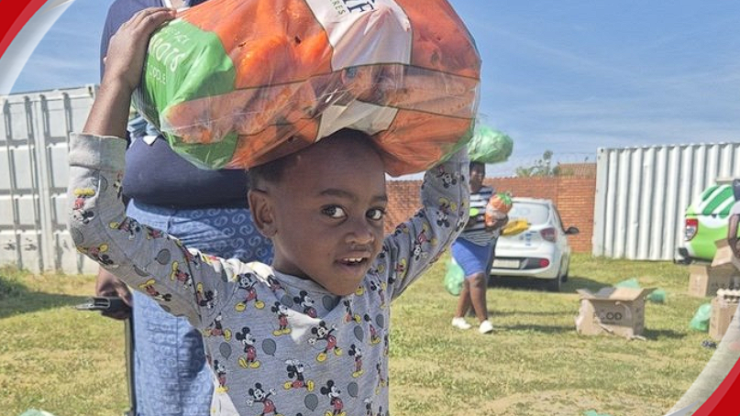Child malnutrition statistics are going the wrong way

Child malnutrition statistics are going the wrong way
- |
-
Nov 12, 2024
On the first Saturday of November each year, South Africa celebrates Children’s Day, and on 20 November, globally, we commemorate World Children’s Day. These special days are used to highlight children’s rights, and the progress made towards the realisation of these rights.
Food and nutrition security is one of those rights of children enshrined in our constitution. Various government interventions are geared towards food and nutrition security for our children. These include the National School Nutrition Programme (NSNP), the Child Support Grant, and indirectly, the Social Relief of Distress Grant and the Department of Social Development’s Community Nutrition and Development Centres, to name a few.
Despite these government programmes and strategies, according to the Human Sciences Research Council (HSRC), child stunting (children under 5 years of age) has increased from 27,5% to 28,8%. Stunting is a malnutrition-related disease where children that do not get the proper nutrition are too short for their age, have limited cognitive development, weak immune systems, and are more vulnerable to infections and diseases throughout their lifetime.
In their Food and Nutrition Security Survey published in 2023 and commissioned by the Department of Agriculture, Land Reform and Rural Development (DALRRD), the HSRC reveal that 63,5% of households surveyed experienced food insecurity, despite the fact that South Africa is regarded as a food secure nation. The HSRC forecasts that by 2025, 1,7 million children will be affected by stunting - which should be regarded as a national disaster.
The triple challenges of poverty, inequality, and unemployment are the main drivers of household food insecurity and malnutrition, which, given our current economic context, will persist for generations to come. Poor households cannot afford to buy all the food they need to eat healthy, and, as we are seeing more and more in recent media reports, people, especially children, are buying cheap foods from local spaza shops, falling ill, and in some cases fatally ill.
With so many households unable to access safe, affordable foods, we need to think differently about solutions to increase access to food for vulnerable households, especially children living in vulnerable households.
While South Africa is a food secure nation as a country, more than one third (10 million tons) of all the food we produce is lost or wasted and is never eaten. We are not a poor country, just poorly managed from a food supply chain perspective. Most of this “wasted” food is actually edible, and, if recovered and redistributed timeously, can eradicate hunger and malnutrition, and save the environment from thousands of tons of methane emissions, a dangerous greenhouse gas caused by dumping food that significantly contributes to climate change.
The University of Cape Town Children’s Institute Child Gauge Report 2020 refers to child malnutrition as a form of slow violence. “A violence that occurs gradually and out of sight, a violence of delayed destruction that is dispersed across time and space, an attritional violence that is typically not viewed as violence at all with its calamitous repercussions playing out across a range of temporal scales.”
FoodForward SA (FFSA), the largest food redistribution non-profit organisation (NPO) on the continent, recovers good quality, edible surplus food from farmers, manufacturers, and retailers, and redistributes this nutritious food to a network of 2,500 registered and vetted beneficiary organisations (BOs) that collectively reach 920,000 vulnerable people across South Africa.
In addition to implementing a range of food security strategies, FFSA, in collaboration with other corporate and NPO partners implements a Mother and Child Nutrition Programme that targets pregnant and nursing mothers and children that are severely underweight, and provides nutritious food parcels each month to their families, until they exit malnutrition. Since all the clients’ weights are measured monthly, we can track and trace improvements, which have been astoundingly positive. FFSA aims to roll this programme out across the country, in order to ensure that child malnutrition is eradicated.
Our children are indeed our future. We must do better to protect them and nurture them. They are our hope for a better society and a better world. If we fail them, we fail any future worth living for.
Add a Comment
Related Resources
Get New Jobs Notification!
Sign up with your email address to receive news and updates. Subscribe to get our latest content by email. We respect your privacy, Unsubscribe at any time.

























Comments